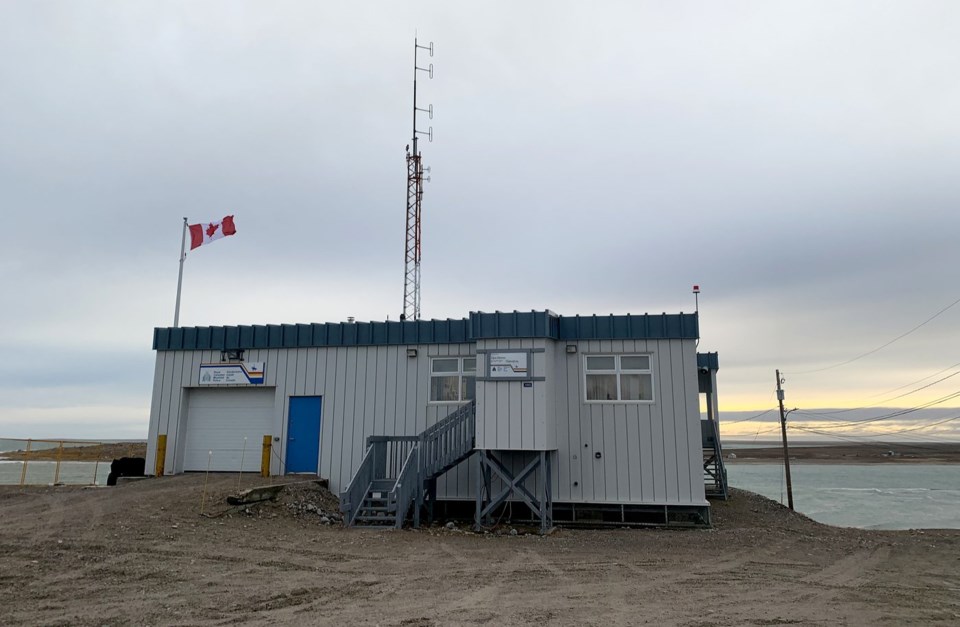A federal oversight body is calling for changes to how Nunavut RCMP handle complaints from the public, starting with fixing investigation turnaround times that should take months but sometimes stretch into years.
The Civilian Review and Complaints Commission also recommended in a report published Thursday that the RCMP make the process more culturally appropriate and accessible to those in the sprawling northern territory.
The report also called for Mounties in Nunavut’s V Division to make public-complaints training mandatory and provide cultural training to officers before they arrive in Nunavut.
"The RCMP in Nunavut should work with communities, Inuit-led groups and the CRCC to develop a culturally appropriate alternative complaint resolution mechanism," the commission said in a statement.
"The Nunavut RCMP should prioritize recruiting and retaining Inuit public complaint investigators and administrators."
The commission is an independent federal agency that reviews complaints against the RCMP.
The Nunavut report made 14 findings and nine recommendations on how the complaint process could be improved.
Among the findings, it determined V Division didn't have a formal process to ensure public complaint investigations complied with national RCMP guidelines. It found documentation and reasons for delays in those investigations were often inadequate.
There were 75 public complaints in Nunavut over the 2018 to 2022 review period, the report said. The commission found investigations took too long, and many were also deemed inadequate.
Also analyzing complaints from 2015 to 2021, the report found some investigations took three to five years to complete. There was also a "general failure" to update people on the status of their complaints.
"Some investigations were not initiated by the RCMP for nearly two years, resulting in some withdrawing their complaints," the report said. "Nearly two-thirds of complaints were either withdrawn or informally resolved — this percentage was much higher than the national average."
The report also found lodging complaints can be intimidating because, in small detachments, the RCMP member residents might be complaining about could be the same one handing them the form.
They may also have a history of dealing with police and feel concerned about "potential retaliation."
It also found language barriers to be an issue as complaints couldn't be filed in Inuktut, forcing complainants to rely on a translator. Reports were often withdrawn because no interpreters were available, the commission says.
"More information needs to be available in Inuktut in various formats, and community members must be able to have access to services in Inuktut," the report said, adding that insufficient Inuit representation contributes to language barriers and overall lack of confidence in the RCMP.
"Recruiting and retaining Inuktut-speaking members needs to be a priority."
The commission said improving Inuit representation would advance reconciliation efforts, show respect for Inuit history and comply with the National Inuit Action Plan.
Nunavut RCMP spokesman Cpl. George Henrie, in an email, said the division "respects the finding of the CRCC report and have made improvements to address the public complaints process."
The report itself notes V Division has begun improving file completion times, and that Nunavut RCMP are also already taking steps to hire more Inuit members and employees.
The report said it's identifying suitable candidates, working to provide language training and arranging for oral exams to be proctored by an RCMP member.
"I am pleased that the RCMP Commissioner has agreed that the Nunavut RCMP will continue to collaborate with the CRCC," said commission chair Michelaine Lahaie in a statement.
"As it is imperative that a culturally appropriate complaint resolution process for Nunavut be developed, the CRCC is committed to working with communities, Inuit-led groups, and the RCMP."
This report by The Canadian Press was first published Nov. 29, 2024.
Aaron Sousa, The Canadian Press




